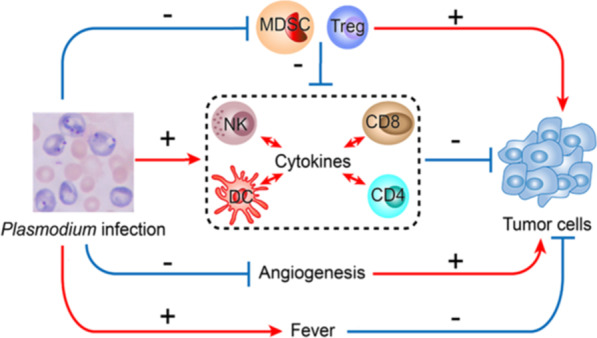Fig. 1.

Simplified schematic diagram of Plasmodium infection against cancer (“ + ” or red line represents promotion, “ − ” or blue line represents inhibition). Plasmodium infection activates innate immune cells including natural killer (NK) cells and dendritic cells (DC) that could kill some cancer cells. These dead cancer cells would release tumor antigens that could activate acquired tumor-specific CD4+ and CD8+ T cell immunities that could more effectively kill cancer cells. Plasmodium infection reduces the number of immune suppressor cells including myeloid-derived suppressor cells (MDSCs) and regulatory T cells (Tregs) within tumor and inhibits their function. Plasmodium infection also inhibits tumor angiogenesis through multiple mechanisms. Plasmodium infection induces regular fever that may kill some cancer cells in cancer patients
